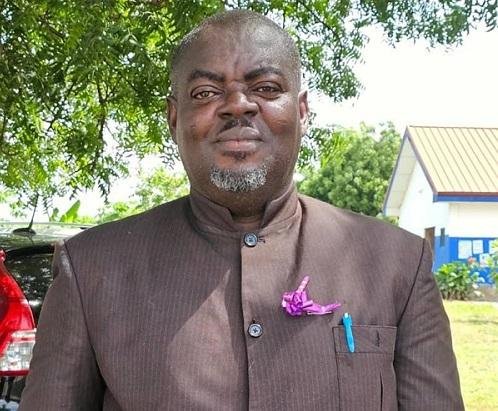Hot!
Don’t turn Special Schools into ‘dumping grounds’ …Parents told

Fi III
The reason why children with special needs are taken to special schools is to bring them up under special conditions by specially trained personnel.
However, it appears some parents have other reasons apart from what is stated above.
Investigations by The Spectator has revealed that some parents and guardians have turned these special schools into ‘dumping grounds’, where they take their wards ostensibly to be educated but ends up abandoning them.
These parents refuse to visit the children throughout the period they stay at the Special Schools in order to avoid the stigma of being treated with contempt by unfriendly members of the society for having such children.
The Chairman for the Parents Association of the Tetteh Ocloo State School for the Deaf at Tema, Nana Barima Fi III, confirmed this in an interview and admitted that it was a challenge the association is facing with.
Nana Barima Fi III said these parents and guardians also do not participate in any activity aimed at promoting the welfare of the children.
But in his view, times have changed for any parent to feel bad for having special children, adding that, “it was rather important to draw these children closer to them and encourage them to be the best they can.”
He added that it was a matter of concern that a meeting of about 300 pupils with special needs would attract just about 50 parents.
Sadly, attempts to get such parents and guardians to have a change of behaviour have not been successful.
He further said parents and guardians who had shown interest in whatever the pupils do over the years would testify about the changes in their wards, giving credence to the saying that, ‘disability is not inability.’
“We need to encourage the children so that their talents will blossom to give their best to make the world a better place,” he appealed.
He recommended that children in the various special schools to be given an opportunity to choose any vocational or technical skill even at the basic school level so that they would be at a better placed to decide whether they would go to a secondary school or a technical or vocational school on completion.
From Dzifa Tetteh Tay, Tema.
Hot!
Many SOEs have been used as mere instruments for personal wealth accumulation –Pres.Mahama

President John Dramani Mahama has expressed concern over the misuse of State-Owned Enterprises (SOEs) for personal financial gain by individuals in leadership positions.
Speaking during a meeting with Chief Executives of specified entities under the State Interest and Governance Authority (SIGA) on Thursday, March 13, the President directly attributed the dire state of SOEs to their leadership, accusing chief executives, management teams, and governing boards of prioritising personal enrichment over organisational efficiency.
He pointed to bloated budgets, unjustified allowances, and unnecessary expenditures as factors draining public funds while SOEs continue to rely on government bailouts.
“Many SOEs have been used as mere instruments for personal wealth accumulation by appointees. The chief executives, management, and boards of these enterprises are responsible for this situation. Some SOEs have become perennial loss-makers, draining public funds with bloated budgets, unjustified allowances, and unnecessary expenditures while relying on government bailouts as if entitled to them. Many of these entities are at their lowest point in the entire history of the Fourth Republic,” he said.
President Mahama further noted that many SOEs have been plagued by inefficiencies, corruption, and mismanagement, leading to consistent financial losses. He cited the 2023 State Ownership Report by the State Interests and Governance Authority (SIGA), which highlighted systemic inefficiencies and wasteful expenditures within these entities.
He therefore reaffirmed his commitment to reforming under-performing SOEs and ensuring they serve national interests.
He warned that loss-making SOEs will no longer be tolerated and will either be merged, privatised, or closed.
“I will assess you based on your performance. If you do not align with the pace of the reset agenda, you may be asked to step aside. If that adds to the horror movie, so be it,” he added.
Source: Myjoyonline.com
Hot!
Prophet Courage Heavens set to launch ‘Predestination’ book on March 23

Prophet Courage A. Heavens is set to launch the much-awaited book titled ‘Predestination’ on Sunday, March 23, 2025 at 5:00PM.
The launch, which is expected to impact lives, will take place at Crossgates Ministries, Flattop, off N1 Highway, opposite Angel Hauz.
The book is aimed at addressing the way people struggle to understand how free will and destiny align.
It is also aimed at providing clarity on God’s sovereignty and one’s place in His divine plan.
The various chapters of the book address various issues through scriptures and personal stories.
Committed to impacting society, part of the proceeds from the book will go into Courage Heavens Education Legacy (CHEL), an educational foundation transforming lives.

CHEL is dedicated to providing financial support and mentorship to brilliant but needy students, ensuring they have access to quality education and opportunities for a better future.
Prophet Courage Heavens is a prolific writer and previously authored Eli Eli Lama Sabachthani, a powerful book that encourages unwavering faith in times of trials.
In addition, he has written seven more prophetic and life-changing books that are yet to be published.
He is dedicated to raising the next generation for impactful ministry. As the leader of Crossgates Ministries, he nurtures believers in faith and purpose.







